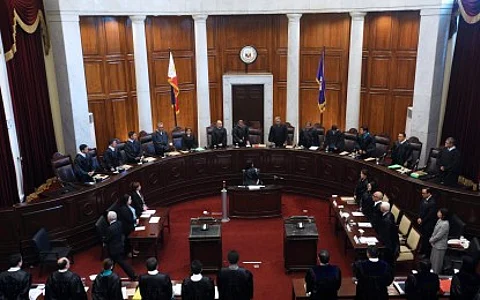
- NEWS
- the EDIT
- COMMENTARY
- BUSINESS
- LIFE
- SHOW
- ACTION
- GLOBAL GOALS
- SNAPS
- DYARYO TIRADA
- MORE

The Supreme Court SC) has ruled that the government’s share of profits from the Malampaya Natural Gas Project includes the income taxes of its private contractors.
This decision, dated 25 February 2025, lifts charges against Shell Exploration B.V., PNOC Exploration Corporation, and Chevron Malampaya LLC for unpaid income taxes.
The ruling, written by Associate Justice Japar B. Dimaampao for the SC En Banc, stems from a 1990 Service Contract for the Malampaya Project. Under the contract, the private companies were to remit 60 percent of the project’s net proceeds to the government.
While the contractors were exempt from all taxes except income tax, the contract included a “tax assumption provision” stating that the government’s 60 percent share covered the contractors’ income taxes from 2002 to 2009.
After a post-audit, the Commission on Audit (CoA) found that over P53 billion in income taxes had been deducted from the government’s share and the agency had ruled the contractors were liable for these taxes, arguing no law explicitly stated their income taxes should be part of the government’s share.
The contractors then challenged this before the Supreme Court.
While the case was pending, the International Chamber of Commerce issued an arbitral award upholding the validity of the tax assumption provision in the Service Contract.
The Supreme Court cited Presidential Decree No. 87, or the Oil Exploration and Development Act, which states that income taxes paid by or on behalf of contractors are included in the government’s guaranteed 60 percent share of net proceeds from petroleum operations.
The law also provides that the government assumes and pays the contractors’ income taxes to encourage private investment in petroleum exploration. This is reiterated in Presidential Decree 1206 and Presidential Decree 1459, which confirm that the government’s share includes all taxes.
The High Court clarified that tax assumption is not tax exemption. Contractors remain liable for income tax, but the government pays it on their behalf as part of its share in the project’s income.
